A State Health Insurance Cards are health coverage card issued under a state-level health insurance/health protection scheme. It enables eligible individuals/families to access cashless or subsidized medical treatment in empaneled hospitals. These cards are part of government efforts to reduce out-of-pocket medical expenses and improve access to healthcare for economically vulnerable populations. So, let’s know more about the State Health Insurance Cards.
Who Is Eligible For The State Health Insurance Cards?
Table of Contents
Eligibility depends on the specific scheme in your state. General criteria for State Health Insurance Cards include:
Residency: Must be a resident of the state. Some schemes require proof of local address.
Economic Status: Many schemes target low-income families, BPL (Below Poverty Line), or identified via the Socio-Economic Caste Census (SECC) data.
Family Size / Dependents: Details of all family members are required; schemes often cover dependents, including spouse, children, and sometimes parents.
Other criteria: Some schemes require proof of income certificate, caste certificate (if applicable), documentation of address, etc. Schemes may set other specific criteria, like not being covered under another health scheme.
Scheme‑Wise Details & Application Process For State Health Insurance Cards:
State Health Insurance Cards are an important tool in ensuring that citizens—especially those from economically weaker sections—can access needed healthcare without being crushed by expenses. The steps to apply are generally straightforward: check eligibility, gather required documents, apply via the scheme’s portal or CSC/local office, get verified, receive the card, and use it in empaneled hospitals. Below are key state / central health insurance schemes, how to apply, and what to keep in mind.
1. Swasthya Sathi (West Bengal):
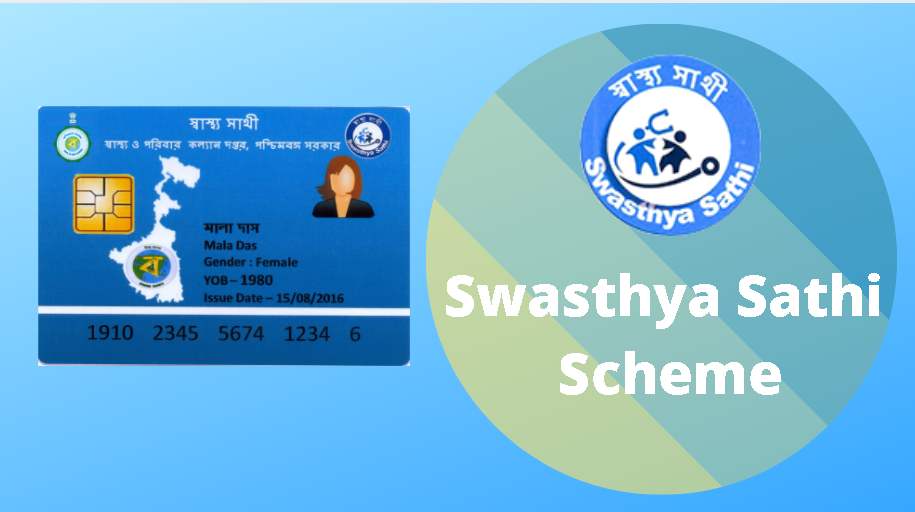
Launched by the Government of West Bengal in December 2016, the Swasthya Sathi scheme is a flagship State Health Insurance Cards program aimed at providing cashless medical treatment to all residents of the state. What sets this scheme apart is its universal coverage—every family in West Bengal is eligible, regardless of income or social category, making it one of the most inclusive health initiatives in India.
Key Benefits of Swasthya Sathi:
- Health Coverage up to ₹5 lakh per year per family on a family floater basis.
- Smart Card-based cashless treatment at over 2,000 empaneled hospitals, both public and private.
- No premium payment required from the beneficiaries; the state government bears the full cost.
- Covers pre-existing diseases and a wide range of secondary and tertiary medical conditions.
- The entire family is covered, including parents of both spouses and dependent physically challenged members.
- Paperless, cashless, and entirely IT-driven, ensuring transparency and quick service.
How to Apply:
Eligible residents can apply for the Swasthya Sathi scheme in the following ways:
Online Registration: Visit the official portal https://swasthyasathi.gov.in and use the “Apply Online” section to register. Fill in personal, family, and address details along with Aadhaar and mobile numbers.
Offline Enrollment: Local government offices, health camps, or “Duare Sarkar” camps assist with enrollment. Provide Aadhaar, Voter ID, and proof of residence.
Once verified, a Swasthya Sathi Smart Card is issued, which can be used at empaneled hospitals for cashless treatment.
Swasthya Sathi is a major step toward universal health access in West Bengal, significantly reducing the financial burden of healthcare on families.
2. Mukh Mantri Sehat Bima Yojana (Punjab):
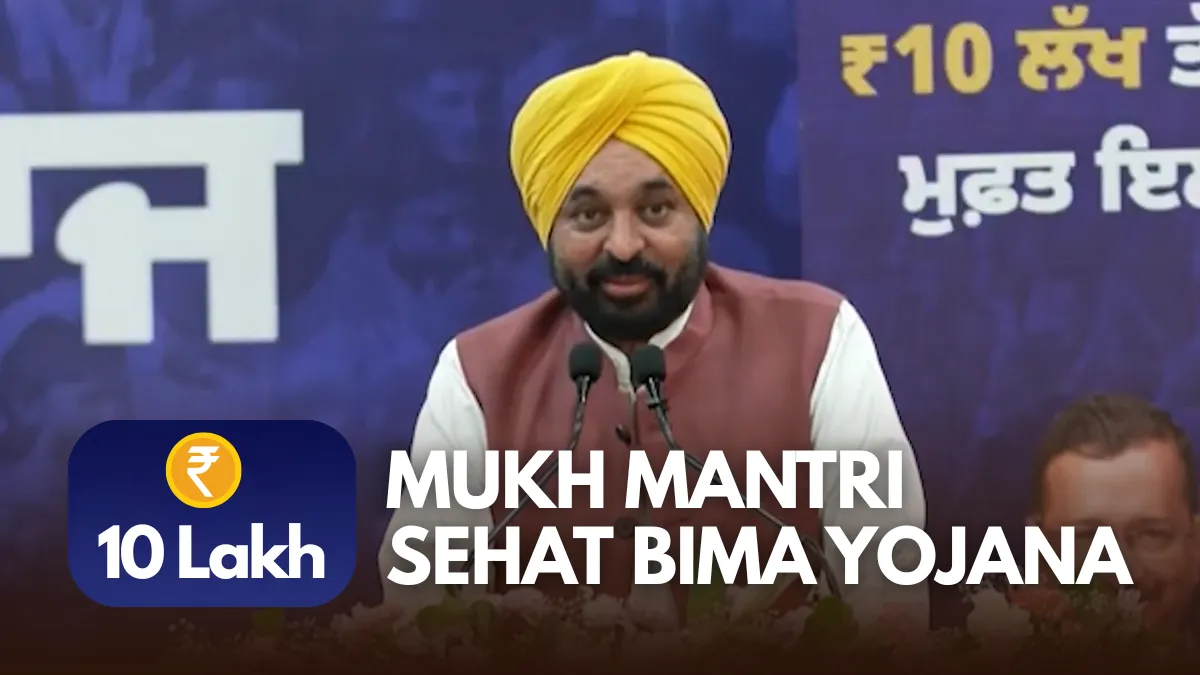
The Mukh Mantri Sehat Bima Yojana (MMSBY) is the flagship State Health Insurance Cards scheme launched by the Government of Punjab to provide cashless medical treatment to its residents. Initially targeted at low-income groups, the scheme has been expanded in 2025 to offer universal health coverage to all families in Punjab, including government employees, accredited journalists, and even those not covered under Ayushman Bharat.
Key Benefits:
- Health coverage of up to ₹10 lakh per family per year for secondary and tertiary care.
- Cashless treatment at over 800 empaneled hospitals (both government and private).
- Covers more than 1,500 medical procedures, including critical surgeries and treatments.
- Entire treatment cost, including pre- and post-hospitalization, is covered.
- No premium is required from the beneficiary; the state government bears the full cost.
- Portability within empaneled hospitals across India under Ayushman Bharat guidelines.
How to Apply:
- Eligibility Check: All residents of Punjab are eligible, including those not covered under SECC or NFSA data.
- Online Registration: Visit the official Shaheed Bhagat Singh Health Insurance Scheme Portal to apply.
- Offline Enrollment: You can register at Common Service Centres (CSCs), Sewa Kendras, or designated enrollment centers across Punjab.
- Documents Required: Aadhaar card, Voter ID, residence proof, and mobile number.
- E-Card Issuance: Upon verification, beneficiaries receive a Digital Health Card or Ayushman Card, which is required for availing cashless treatment.
The Mukh Mantri Sehat Bima Yojana is a major step towards universal health coverage in Punjab, offering financial protection against rising healthcare costs and ensuring quality treatment for every citizen.
3. Mahatma Jyotirao Phule Jan Arogya Yojana (Maharashtra):
The Mahatma Jyotirao Phule Jan Arogya Yojana (MJPJAY) is a flagship State Health Insurance Cards scheme launched by the Government of Maharashtra to provide free and cashless medical care to economically vulnerable sections of society. It aims to ensure that quality healthcare is accessible to those who cannot afford costly medical treatments.
Initially introduced in 2012 as the Rajiv Gandhi Jeevandayee Arogya Yojana, it was renamed to honour the great social reformer Mahatma Jyotirao Phule.
Key Benefits:
- Cashless treatment up to ₹1.5 lakh per family per year across empaneled hospitals.
- Coverage includes over 1,000 surgical and therapeutic procedures, including cancer treatments, cardiac surgeries, orthopaedics, burns, and neonatal care.
- Beneficiaries can access treatment at empaneled government and private hospitals within Maharashtra.
- Additional coverage of up to ₹2.5 lakh for renal and organ transplants.
- All pre- and post-hospitalization expenses related to covered procedures are included.
- No premium or cost to the beneficiary; the entire scheme is state-funded.
How to Apply:
Eligibility: Residents of Maharashtra with a Yellow, Orange, Antyodaya, or Annapurna Ration Card are eligible.
Enrollment: Visit your nearest MJPJAY Help Desk at an empaneled hospital or Aarogyamitra centre.
Documents Required: Ration card, Aadhaar card, and address proof.
E-Card Issuance: Upon verification, an e-health card is issued, which allows the beneficiary to avail of cashless treatment.
No online self-registration is needed; enrollment is facilitated through government-appointed representatives.
MJPJAY is a critical step by the Maharashtra government toward universal health access, helping thousands avoid catastrophic health expenditures and receive timely, quality medical care.
4. Karunya Arogya Suraksha Padhathi (Kerala):
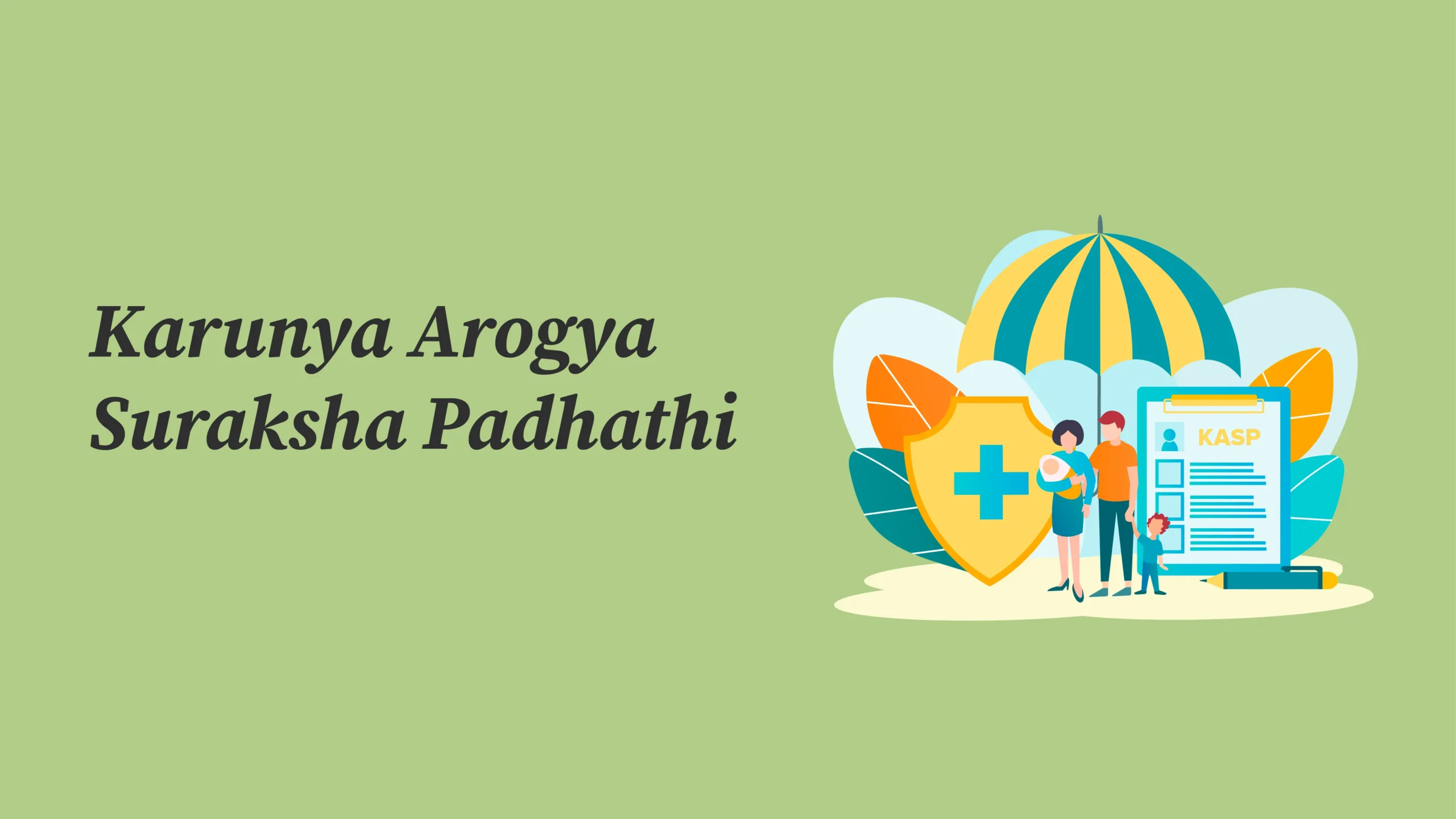
The Karunya Arogya Suraksha Padhathi (KASP) is Kerala’s version of the Ayushman Bharat – Pradhan Mantri Jan Arogya Yojana (PM-JAY), implemented by the Government of Kerala. Designed to ensure equitable access to quality healthcare, KASP provides cashless health insurance coverage to poor and vulnerable families across the state.
By merging multiple state-sponsored schemes under one umbrella, KASP simplifies access to critical healthcare and strengthens Kerala’s commitment to universal health coverage.
Key Benefits:
- Cashless treatment up to ₹5 lakh per family per year on a family floater basis.
- Covers over 1,500 medical procedures, including surgeries, critical illnesses, cancer treatment, and organ transplants.
- Available at empaneled public and private hospitals within and outside Kerala.
- Beneficiaries receive services from pre-hospitalization to post-discharge, including follow-up care.
- Paperless and cashless system through e-cards and biometric authentication.
- Scheme coverage includes migrant workers, scheduled castes/tribes, BPL families, and other eligible households.
How to Apply:
- Eligibility Check: Visit the official KASP portal or https://pmjay.gov.in to check if your family is listed using Aadhaar or a ration card.
- Enrollment: If eligible, visit your nearest Akshaya centre, hospital helpdesk, or KASP district office.
- Documents Required: Aadhaar card, ration card, and mobile number.
- Get Your KASP e-Card: After verification, an e-health card (also called Ayushman card) is issued, which can be used for cashless treatment.
- No Enrollment Fee: The scheme is completely free for eligible beneficiaries.
KASP is a vital health safety net for Kerala’s underprivileged, ensuring that financial constraints do not prevent families from receiving timely and quality medical care.
5. Chief Minister Health Insurance Scheme, Nagaland:
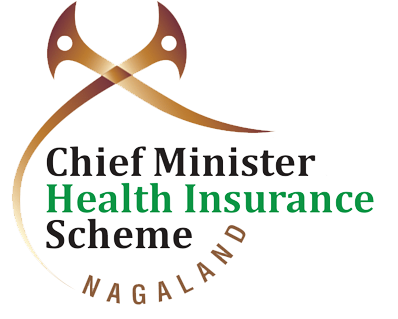
The Chief Minister’s Health Insurance Scheme (CMHIS) is a flagship initiative launched by the Government of Nagaland to provide universal health coverage to the people of the state. Introduced in October 2022, the scheme aims to reduce the financial burden of medical treatment, especially for low-income families and those not covered under existing health schemes like Ayushman Bharat.
CMHIS is divided into two components:
- CMHIS (GEN): For the general population not covered under Ayushman Bharat – PM-JAY.
- CMHIS (EPY): For state government employees, pensioners, and their dependents.
Key Benefits:
- Cashless treatment up to ₹5 lakh per family per year under both CMHIS-GEN and CMHIS-EPY.
- Coverage includes secondary and tertiary care, including surgeries, cancer care, and critical illnesses.
- No premium is charged to beneficiaries under CMHIS-GEN; fully funded by the state government.
- Available at empaneled government and private hospitals across Nagaland and India.
- Each family receives a health card (e-card) for availing services.
How to Apply:
Visit the Official Portal: Go to https://cmhis.nagaland.gov.in for registration and scheme details.
Eligibility:
- CMHIS-GEN: All residents of Nagaland not covered under PM-JAY.
- CMHIS-EPY: Registered government employees and pensioners.
Registration Process:
- Register online using Aadhaar, mobile number, and other personal details.
- Upload supporting documents (ID proof, address proof, ration card, etc.).
- Once verified, download or collect your CMHIS Health Card.
The CMHIS scheme is a major step towards universal and inclusive healthcare in Nagaland, ensuring that no citizen is denied medical treatment due to financial constraints.
6. Chief Minister’s Comprehensive Health Insurance Scheme (Tamil Nadu):
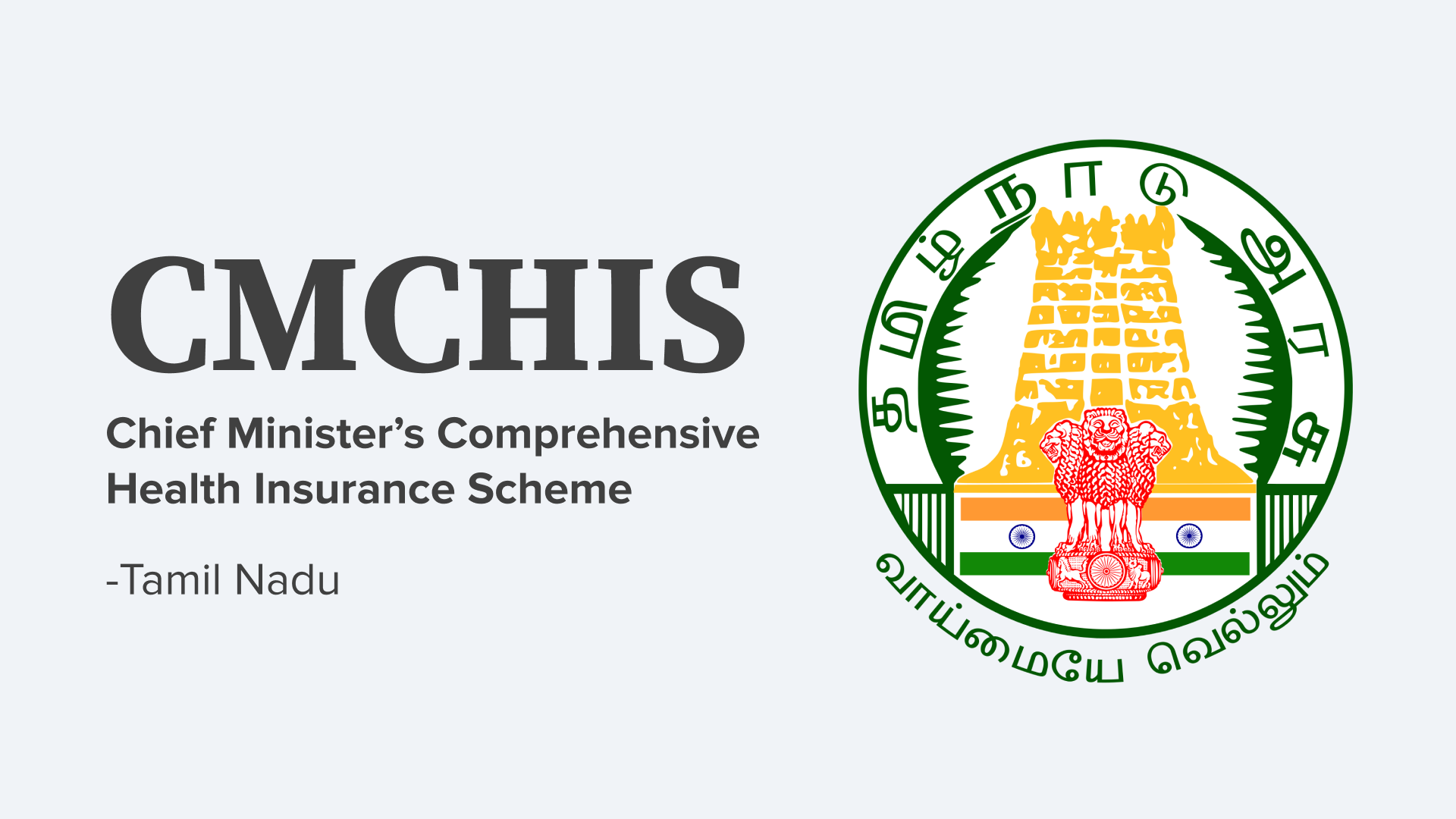
The Chief Minister’s Comprehensive Health Insurance Scheme (CMCHIS) is a pioneering health insurance initiative launched by the Government of Tamil Nadu to provide cashless and quality medical care to economically weaker sections of society. Operated under the Tamil Nadu Health Systems Project, the scheme has been instrumental in reducing out-of-pocket healthcare expenses for millions of families across the state.
CMCHIS is also integrated with the Ayushman Bharat – Pradhan Mantri Jan Arogya Yojana (AB-PMJAY) to ensure seamless health benefits under a unified platform.
Key Benefits:
- Cashless treatment up to ₹5 lakh per family per year on a family floater basis.
- Covers over 1,500 medical procedures, including surgeries, cancer care, cardiac treatments, and emergency services.
- Beneficiaries can avail treatment at over 1,600 empaneled hospitals (both public and private).
- Includes pre- and post-hospitalization expenses, diagnostics, and follow-up care.
- The scheme is completely free for eligible families—no premium or registration cost.
How to Apply:
Eligibility:
- Annual family income should be less than ₹1.2 lakh.
- Must be a resident of Tamil Nadu with a valid smart ration card or income certificate.
Enrollment Process:
- Visit the nearest CMCHIS enrollment center (set up in government hospitals or taluk offices).
- Submit documents: Aadhaar card, smart ration card/income certificate, passport-size photo.
- Biometric data will be collected, and an e-health card is issued.
Using the Card:
- Present the card at empaneled hospitals to get cashless treatment.
The CMCHIS scheme is a cornerstone of Tamil Nadu’s public health system, ensuring affordable and accessible healthcare for those who need it most.
7. Yeshasvini Health Insurance Scheme (Karnataka):
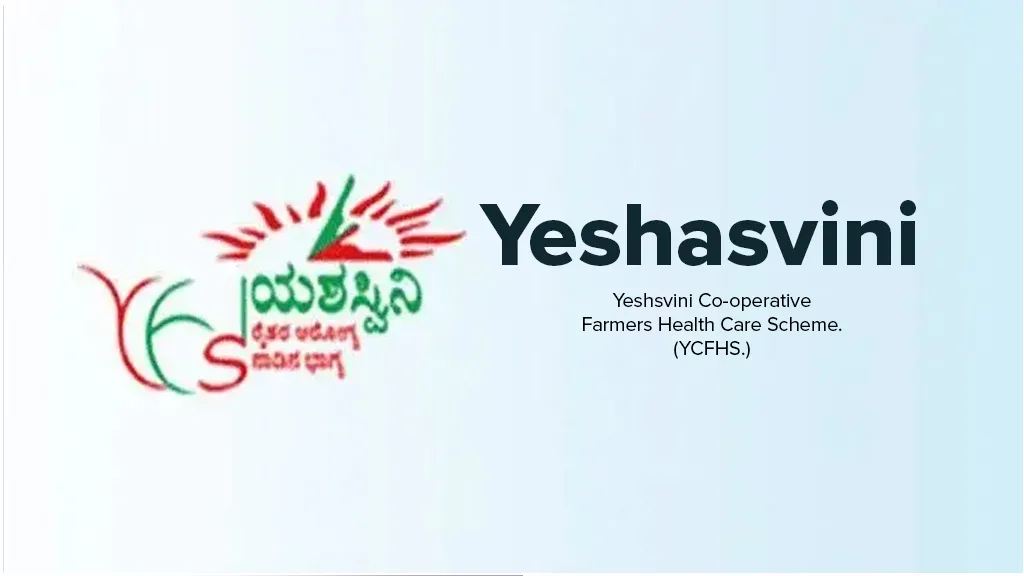
The Yeshasvini Health Insurance Scheme is a pioneering health initiative launched by the Government of Karnataka to provide affordable and cashless healthcare to members of cooperative societies in both rural and urban areas of the state. First introduced in 2003, the scheme is now overseen by the Department of Cooperation, making it one of the largest self-funded health insurance programs in India.
The scheme is specifically designed to help small and marginal farmers, self-employed workers, and rural families who are part of cooperative societies access quality medical treatment without financial hardship.
Key Benefits:
- Cashless treatment up to ₹2 lakh per family per year for surgical and medical procedures.
- Covers more than 800 procedures, including major surgeries like orthopaedic, cardiac, and general surgeries.
- Available at over 800 network hospitals, both private and government, across Karnataka.
- Minimal annual premium (varies year to year but remains affordable, around ₹300–₹1000).
- Pre-existing conditions are also covered after a short waiting period.
- The scheme covers members, their spouses, and dependent children.
How to Apply:
Eligibility:
- Must be a member of a cooperative society registered under the Karnataka Cooperative Societies Act.
- Membership should be active for at least 3 months before enrollment.
Enrollment Process:
- Visit your nearest cooperative society or Yeshasvini enrollment center.
- Submit proof of cooperative society membership, Aadhaar card, and photos.
- Pay the nominal premium during the enrollment window (usually April to June each year).
Health Card Issuance:
- Once registered, members receive a Yeshasvini Health Card for cashless treatment.
The Yeshasvini Scheme stands as a model for inclusive and low-cost healthcare, empowering Karnataka’s cooperative members to lead healthier lives.
8. Mukhyamantri Amrutum (MA) Yojana (Gujarat):
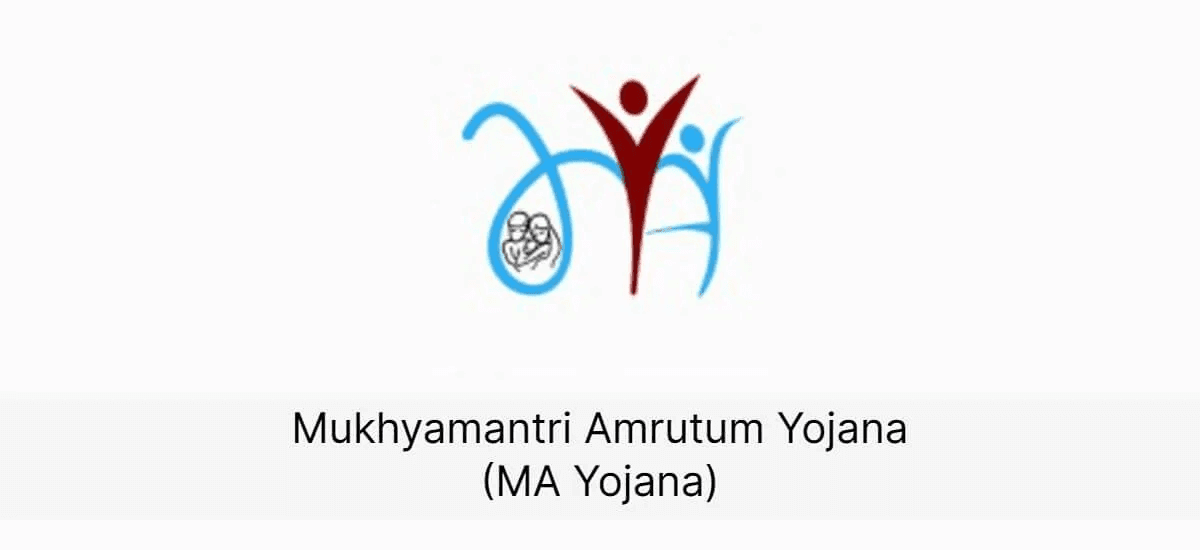
The Mukhyamantri Amrutum (MA) Yojana is a flagship State Health Insurance Cards scheme launched by the Government of Gujarat in 2012 to provide cashless, quality medical care to families living below the poverty line (BPL) and lower-income groups. The scheme reflects the state’s commitment to making advanced healthcare accessible to its most vulnerable citizens.
Later extended as the MA Vatsalya Yojana, it also covers lower-middle-income families, ensuring wider coverage across economic groups.
Key Benefits:
- Cashless treatment up to ₹5 lakh per family per year on a family floater basis.
- Covers tertiary care treatments such as cardiac, renal, neurological, cancer, and burns.
- Includes over 700 procedures and covers pre- and post-hospitalization expenses.
- Available at empaneled private and government hospitals across Gujarat and other states.
- Beneficiaries receive a MA card with biometric verification, ensuring transparency and easy access.
- 100% free of cost – no premium, registration fee, or treatment charges for eligible families.
How to Apply:
Eligibility:
- BPL families with valid BPL cards.
- Lower-income groups with an annual income below ₹4 lakh (under MA Vatsalya).
- Senior citizens from any family with an annual income under ₹6 lakh (in some categories).
Enrollment Process:
- Visit a Taluka kiosk, Civic Centre, or District Health Office.
- Submit documents: Aadhaar card, income certificate, ration card, and passport-size photo.
- Biometric verification is conducted, and MA cards are issued on the spot.
Hospital Access:
- Present your MA card at any empaneled hospital to get cashless treatment.
The MA Yojana is a vital support system for Gujarat’s poor, ensuring that no family is denied treatment due to lack of money.
9. Dr YSR Aarogyasri Health Scheme (Andhra Pradesh):
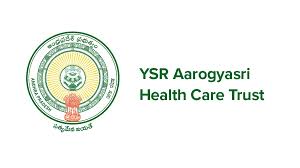
The Dr. YSR Aarogyasri Health Scheme is a flagship State Health Insurance Cards initiative by the Government of Andhra Pradesh aimed at ensuring universal health coverage for economically weaker sections of society. Launched in 2007 and renamed after former Chief Minister Dr. Y.S. Rajasekhara Reddy, the scheme has evolved into one of the most comprehensive cashless healthcare programs in India.
It is particularly focused on helping Below Poverty Line (BPL) families access quality medical care for serious illnesses, without financial burden.
Key Benefits:
- Cashless medical coverage up to ₹5 lakh per family per year for critical illnesses and surgeries.
- Covers over 2,400 medical procedures, including cardiac, cancer, neurology, nephrology, burns, and organ transplantation.
- Beneficiaries receive treatment at network hospitals within Andhra Pradesh and across India.
- Free pre- and post-hospitalization care, diagnostics, follow-ups, and medicines.
- Includes Dr. YSR Telemedicine and Health Referral Services for remote consultations.
- Families receive an Aarogyasri Health Card for identity and access.
How to Apply:
Eligibility:
- Resident of Andhra Pradesh.
- Must have a White Ration Card or be listed under Socio-Economic Caste Census (SECC) data as BPL.
- Aadhaar-linked mobile number and income verification required.
Enrollment Process:
- Visit the nearest Aarogyasri Enrollment Kiosk or Village/Ward Secretariat.
- Submit Aadhaar, ration card, income certificate, and photos.
- After verification, receive the Aarogyasri Card.
Hospitalization:
Present the card at empaneled hospitals for paperless, cashless treatment.
The Dr. YSR Aarogyasri Scheme stands as a model for equitable healthcare delivery, ensuring that no family in Andhra Pradesh suffers due to the inability to afford medical treatment.
10. Bhamashah Swasthya Bima Yojana (Rajasthan):
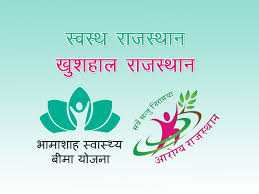
The Bhamashah Swasthya Bima Yojana (BSBY) is a flagship health insurance initiative launched by the Government of Rajasthan to provide cashless and affordable healthcare to economically weaker families. Named after the legendary financier Bhamashah, the scheme is designed to reduce out-of-pocket medical expenses and improve access to quality healthcare across the state.
BSBY complements the Ayushman Bharat – Pradhan Mantri Jan Arogya Yojana (AB-PMJAY) by providing additional coverage to families who are not beneficiaries under the central scheme.
Key Benefits:
- Provides cashless health insurance coverage up to ₹5 lakh per family per year.
- Covers over 1,500 medical procedures, including surgeries, cancer treatments, cardiac care, and kidney dialysis.
- Available at more than 1,000 empaneled hospitals across Rajasthan and other states.
- Covers pre-hospitalization, post-hospitalization, and follow-up care.
- Entirely free for eligible families; no premium or registration fees.
- Includes coverage for Bhamashah card holders who are not covered under AB-PMJAY.
How to Apply:
Eligibility:
- Families possessing a Bhamashah card and not covered under the AB-PMJAY are eligible.
- Priority is given to economically weaker sections and BPL families.
Enrollment Process:
- Visit the nearest Common Service Centre (CSC), Jan Seva Kendra, or Bhamashah helpdesk in government offices.
- Submit documents including Aadhaar card, Bhamashah card, ration card, and residence proof.
Health Card Issuance:
- After verification, a BSBY health card is issued to the family.
Using the Card:
- Present the health card at any empaneled hospital to avail cashless treatment.
The Bhamashah Swasthya Bima Yojana is a vital health safety net for Rajasthan’s vulnerable populations, ensuring that financial barriers do not prevent access to quality medical care.
Conclusion:
State health insurance schemes are a powerful way to ensure affordable access to healthcare for millions of Indians. The process generally involves checking eligibility, submitting required documents, filling the application (online or offline), undergoing verification, and finally receiving a health card to use in empaneled hospitals.
FAQ:
Q. Is there any fee for enrolling in these health insurance schemes?
A. Usually no. Many state & central schemes are government-funded, and there is no premium or enrollment fee for the beneficiary.
However, in certain schemes or special circumstances, nominal charges may apply (printing, courier, etc.). Always check your state scheme’s rules.
Q. How long does it take to get the health card after application?
A. It varies by scheme, state, and verification workload. It may take from a few days to several weeks. In many cases, digital/electronic cards are issued faster.
Q. What if I lose my health card?
A. Most schemes allow issuance of a duplicate/reprint after verification of identity and submission of application. A nominal administrative charge may be applicable.
Q. Can the health card be used in any hospital?
A. No. It can be used only in empaneled hospitals under that scheme. Always check whether a hospital is part of the scheme before going there.
Q. Are pre-existing diseases covered?
A. Many schemes (like Swasthya Sathi) cover pre-existing diseases from day one. Others may have waiting periods. Please verify scheme details.
Q. Does the scheme cover all types of treatments/surgeries?
A. Schemes define packages/procedures that are covered. Not every medical procedure may be covered. Some treatments (cosmetics, elective, etc.) may be excluded.
Q. Can I use the card outside my state?
A. Many state-specific cards do not allow treatment in hospitals outside the state, but some central schemes like PM-JAY may permit inter-state use under certain conditions.
Q. Can I have both state and central health insurance?
A. Yes. If eligible, you may hold both. But depending on the rules, you might need to use one or the other for a particular hospitalization.
